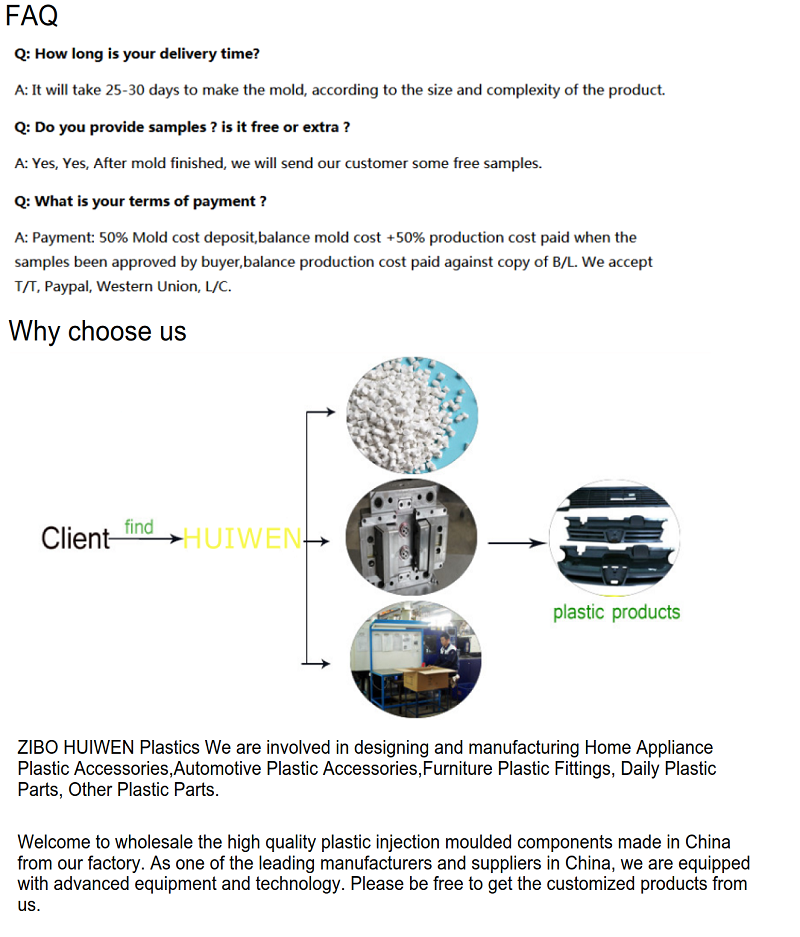Our advanced custom CNC plastic machining services deliver high-precision, durable components tailored to exact specifications across multiple industries. Whether you're developing medical devices, automotive systems, smart robotics, or consumer electronics, our range of engineered thermoplastics ensures optimal performance under demanding conditions. With over 20 material options including ABS, PC, PEEK, PPS, and more, each part is manufactured using state-of-the-art computer numerical control (CNC) technology to achieve tight tolerances, consistent quality, and rapid turnaround times. These machined plastic parts are ideal for prototyping, low-to-medium volume production, and specialized industrial use cases where reliability and customization matter most.
Key features include exceptional dimensional accuracy (±0.01mm), excellent surface finish options, compatibility with complex geometries, and the ability to customize colors, finishes, and mechanical properties based on application requirements. Materials such as PEEK offer superior thermal stability and chemical resistance, while flexible polymers like TPU and TPE provide impact absorption and vibration damping—making them perfect for dynamic environments. Our team supports full design validation, material selection guidance, and compliance with international standards such as ISO 13485 for medical-grade parts and IATF 16949 for automotive components.
Each component begins with a detailed CAD model, followed by precise milling, turning, drilling, and finishing operations performed in-house using multi-axis CNC machines. This process allows us to produce intricate shapes from rigid materials like PMMA and PA (Nylon) to semi-flexible ones like silicone and rubber. For example, medical device manufacturers benefit from sterile-ready, biocompatible plastics like PEI and PTFE, while home appliance makers rely on flame-retardant PP and UV-resistant acrylics. The versatility extends to reinforced variants such as glass-filled nylon (+30% GF) and polypropylene (+20% GF), which enhance stiffness and reduce wear in moving parts. We also offer custom color matching using Pantone or RAL systems to meet branding or functional needs—ideal for product differentiation in competitive markets.
These precision-machined plastic parts serve critical roles in sectors ranging from intelligent automation (e.g., robotic arms, enclosures, gear housings) to energy-efficient appliances (e.g., motor housings, sensor mounts). In the automotive industry, they support lightweighting initiatives through the use of high-strength polymers that replace metal without sacrificing safety or durability. Consumer electronics benefit from sleek, aesthetically pleasing designs made possible by clear or colored polycarbonate and acrylic, often used in phone casings, camera lenses, and internal brackets. Additionally, industrial equipment relies on corrosion-resistant materials like PPS and PTFE for long-term operation in harsh environments—including chemical exposure, extreme temperatures, and repeated mechanical stress.
Customers consistently praise the engineering excellence and responsiveness of our service. One client in the robotics sector noted how our custom-designed nylon gears improved system efficiency by reducing friction compared to standard alternatives. Another user in healthcare appreciated the fast lead time and ability to validate biocompatibility for surgical instrument housings. Feedback highlights not only technical precision but also collaboration throughout the design phase—from concept sketch to final prototype—ensuring every part meets real-world operational demands.
Common questions include: “What makes CNC-machined plastic better than injection molding for small batches?” Answer: CNC offers greater flexibility for design changes, no tooling costs, and faster iteration cycles. “Can you machine transparent materials?” Yes—we work with clear PMMA, PC, and PEI for optical applications. “Are these parts suitable for outdoor use?” Absolutely—if we select weather-resistant grades like UV-stabilized PP or black PEEK, they withstand prolonged sunlight exposure without degradation. “How do I choose the right material?” We recommend consulting our material selector guide or discussing your specific load, temperature, and environmental conditions with our engineers to ensure longevity and performance.














